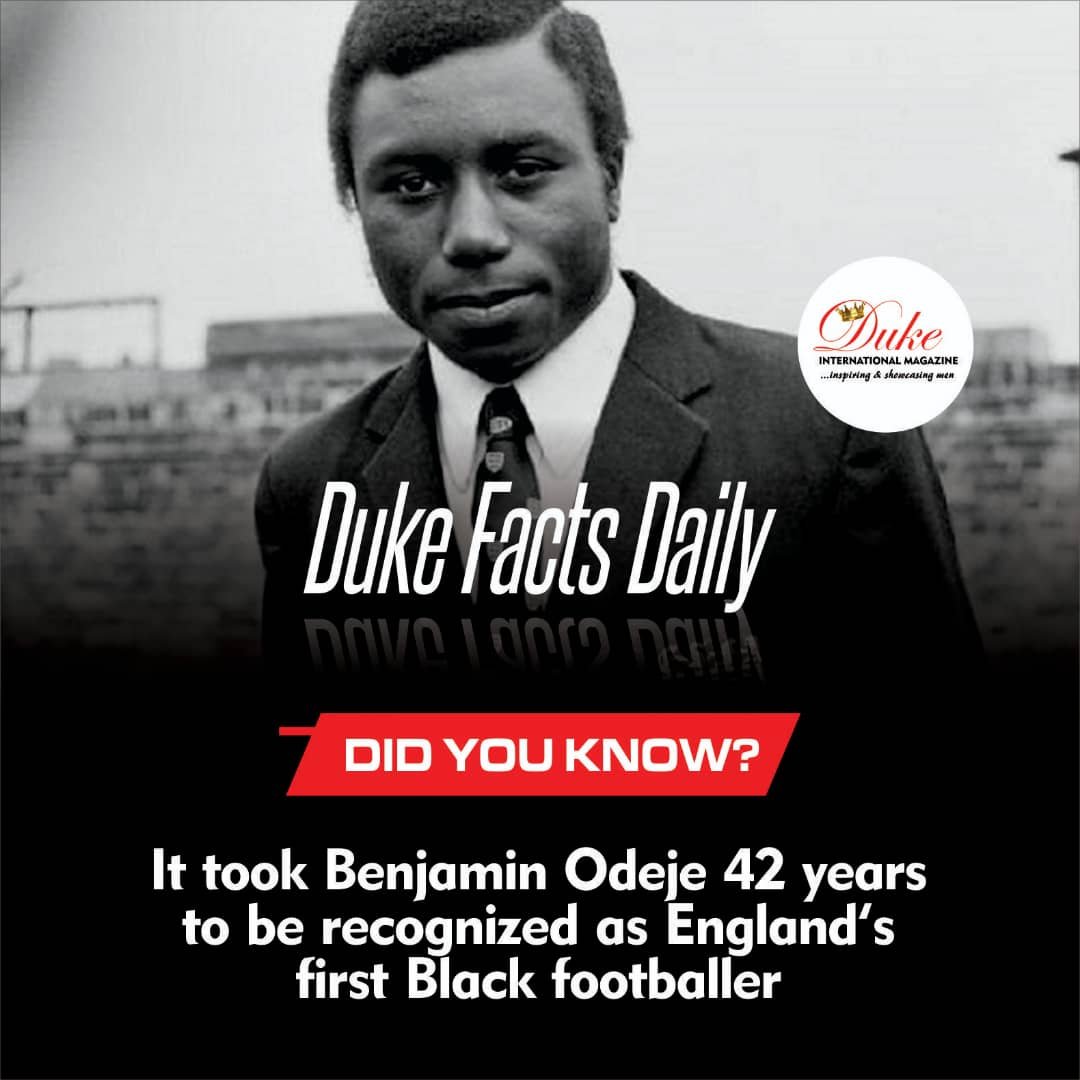Little did Benjamin Odeje knew he was writing for himself a football history when he was called up by England schoolboys and made his debut against Northern Ireland in 1971. The young schoolboy of Nigeria descent on March 6, 1971, helped England to a 1 nil win in front of a Wembley crowd of 70,000 fans.
“I remember standing in the tunnel, and the band was still playing,” he recalled in an interview with BBC. “My knees were knocking and if you’d given me the choice to forget it I probably would have, I was so nervous.”
Soon forgotten, Odeje played in the Three Lions shirt for some time. However, history books recognized Laurie Cunningham, the West Bromwich Albion man who appeared for the Under 21’s in 1977, as England’s first Black footballer at any level. Then came Viv Anderson, who became the first to win a senior cap. But all these were achieved years after Odeje made his historic appearance for England.
Unfortunately, Odeje had to fight for decades to be recognized as the first Black footballer for England at any level.
Grew in Charlton, Odeje’s natural talent for goal scoring cannot be undermined as he scored 400 goals in three seasons at schoolboy level. He scored for South East London School, Blackheath District and London Schoolboys where his coach was Roy Hodgson. For his scoring record, he was dubbed the ‘Boy Pele’ by the English media.
Odeje would beat all the odds to earn a call up to the England schoolboys team and then went on to make history during his game against Northern Ireland, six years before either Cunningham or Anderson became stars. “It was something I can’t describe now. No words can describe how I felt apart from being extremely happy,” Odeje said of his feat.
“The mere fact that I didn’t realize I was making history; all I wanted as a player was to play football.”
Later faced with sentimental reservations, Odeje was dropped by England schoolboys despite his remarkable achievement and which led an halt in his footballing career.
He mostly spent his career at London non-league clubs including Hendon, Dulwich Hamlet and Clapton before taking up a coaching role at QPR and going on to become a PE teacher.
Then there was the fact that he had to wait for his recognition. His children were mocked and called liars at school whenever they mentioned the fact that their dad was England’s first Black footballer. “They actually wanted to stop going to school because they were labeled as the girls who wanted to claim fame,” Odeje said.
For 42 years, Odeje made many attempts to state his case but was ignored until BBC intervened. In 2013, a spokesman for the Football Association said: “We’ve spoken to our historian, and at the time the English Schools’ Football Association ran the team.
“But we can confirm Benjamin Odeje was the first Black player to represent England at any level.”
That BBC interview was all Odeje and his family had waited to hear. His children could now “proudly go to school with their heads held up high because they realized their father was the first,” Odeje recounted.
Still, the Nigerian-born player can never forget the racist abuse he suffered. He stated that bananas were regularly thrown at him and got racist comments from his own teammates and managers if he did not perform well.
Today, Odeje, who has worked in coaching for over 25 years, runs a soccer school in Queens Park, North West London for children.
One parent, John Palmer, told BBC London: “It is only right and proper that he gets his correct recognition.
“He was the first – and here he is still enjoying the game.”

